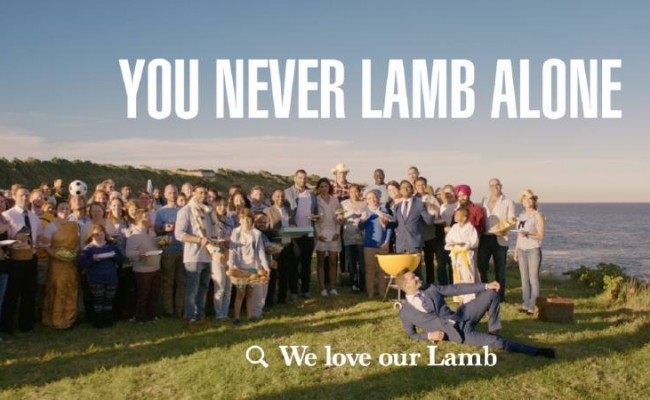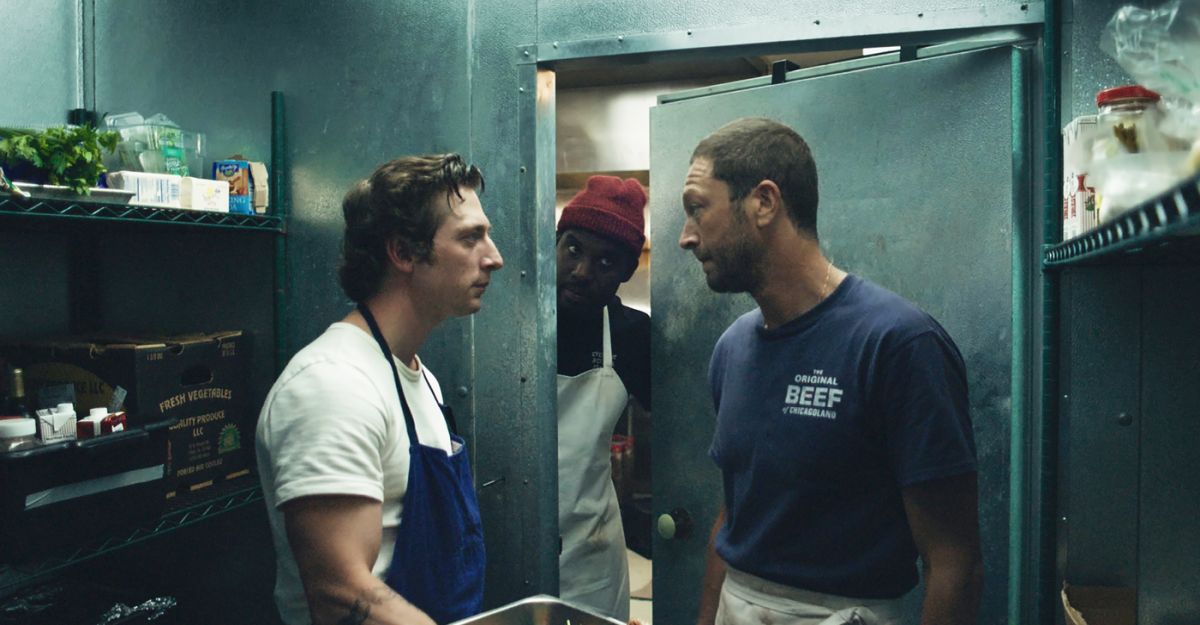Controversial advertisements for lamb have been a feature of our media landscape for some time, presaging Australia Day and the coming of spring with their familiar nationalistic bluster. It was the first ad, back in 2005, presented by former AFL player Sam Kekovich, which set the mould: irreverent, knowingly hectoring, casually racist and homophobic. The ad also traded on the curious, enduring invention that lamb has traditionally been the culinary centerpiece of Australia Day celebrations – and, therefore, to refrain from it is unpatriotic. (Actually, as Jeff Sparrow has pointed out, the public was largely indifferent to Australia Day until as recently as the 1990s. What’s more, per person lamb consumption in Australia has fallen dramatically since its 1970s heyday – from an average of 21kg per year in 1976 to just 9kg in 2011 – placing it a long way behind poultry, pork, and beef in our hierarchy of preferred animal foodstuffs.)
In the first sign that the organisation behind these ads, Meat and Livestock Australia (MLA), had grown sensitive to accusations of cultural homogeneity, this year’s Australia Day ad featured popular Asian-Australian newsreader Lee Lin Chin as the mastermind of ‘Operation Boomerang’, a military campaign to bring itinerant Australians home to enjoy a meal of barbecued lamb on the country’s national day. Nevertheless, the ad drew scores of complaints – it was violent and jingoistic, offensive to Indigenous Australians, and incited hatred towards vegans. The Advertising Standards Board dismissed the complaints it received, but it’s hard not to draw the conclusion from the most recent ad that MLA were stung by the criticism ‘Operation Boomerang’ received.
Created by chic advertising agency The Monkeys, the new spring ad looks for all the world like an attempt to forestall these kinds of objections for good. It opens on a shot of green, sundrenched countryside, wherein white Australian actor Luke Jacobz is having his final touches of make-up applied. He sets off at a brisk pace, saying ‘I’m here to address concerns that too many perky white males are contributing to a lack of diversity on our screens’. Having now morphed into Indian-Australian actor Arka Das, the presenter continues his stroll throughout the course of a single, unbroken take, chatting to a remarkably diverse collection of Australians – same-sex parents, Muslims and Christians, Indigenous and transgender Australians, people of colour, and representatives of ‘all the –stans’, who have come together for – what else? – a lamb barbecue. Whereas previous ads in the series were unashamedly divisive, the spring ad marks a different tack, playing on current concerns around a lack of representational diversity on our screens to portray lamb as ‘the meat that doesn’t discriminate’. According to the MLA website:
Further embracing unity the lamb message will also be spread across ethnic print press and in language social media (WeChat and Weibo).
Putting aside the cynicism of exploiting a sincere and widespread concern in the community about our culture’s diversity problem to simply sell more stuff, surprisingly little has actually changed beneath the ad’s appealingly progressive surface.
The old Kekovich-style barbs are still there – the ‘let’s not be space-ist’ dig at political correctness – while the message remains substantially the same, underscored at the ad’s end by the familiar strains of ‘Waltzing Matilda’. Get it: to not eat lamb is un-Australian.
While only around six per cent of Australians identify as vegetarians or vegans, close to half of India’s population subscribes to a vegetarian diet – so much for fostering unity. In this way, the ad is deeply ironic: even as its stunningly diverse cast is paraded before us, varying social or cultural objections to meat are pounded flat to form a homogenous love-in. If the ‘Operation Boomerang’ ad exposed the ‘endlessly protean’ nature of nationalism, then the new ad, for me, does the same thing for capitalism, demonstrating that the market is infinitely malleable so long as its capacity to commodify culture is unthreatened.
The way the ad illustrates meat’s traditionally conservative, masculinist code, with men doing virtually all of the talking, and exclusively in charge of the climactic barbecue is also nothing new. As Good Food’s Inga Ting has observed:
Sociologist Professor Deborah Lupton of the University of Sydney says meat in Australia, particularly red meat, plays an important role in popular conceptions of male identity.
‘In Australia, meat is seen as men’s food,’ Lupton says. ‘It’s heavy, it requires a lot of digestion, it’s dead animals, so it’s associated with masculinity. Whereas women’s food is food like salad, which is light, easy to chew and so on.’
It’s an idea that was popularised by Carol J Adams’ The Sexual Politics of Meat, a classic of feminist-vegetarian critical theory, in which Adams argued that the symbolic meaning of meat is ‘intrinsically patriarchal and male-oriented’, tied to notions of virility and domination. I don’t wish to overstress this point – after all, it’s the Left’s fixation on symbolism that seems to have allowed progressive commentators to embrace the new lamb ad – but language and images shape the real world in important ways. In the case of meat, as Adams noted, advertising often employs various symbolic devices to distance consumers from the horrific realities of the animal farming industries. How often, for example, do we stop to think that the lamb we eat is the flesh of baby animals slaughtered 6–8 months into a 12–14 year lifespan, or that we sometimes refer to our own children as ‘lambs’ in acknowledgment of their gentleness?
The MLA ads have always swept such things away, of course, but enlisting the admirable project of increasing diversity on our screens to hide the violence done to animals – simultaneously pleasing left-wingers, and pissing off rightwing fans of the old ads who see the new ploy as a cave-in to the ‘social justice warriors’ – looks unusually desperate: a nakedly commercial exercise to restore a tarnished brand, and the ever-diminishing sales of an unpopular product.
I can’t truthfully say I miss Sam Kekovich, but at least he never pretended to be something he wasn’t.
Related article: ‘Production lines of flesh & bone’, also by Ben Brooker






